Keywords: Hate
There are more than 200 results, only the first 200 are displayed here.
-
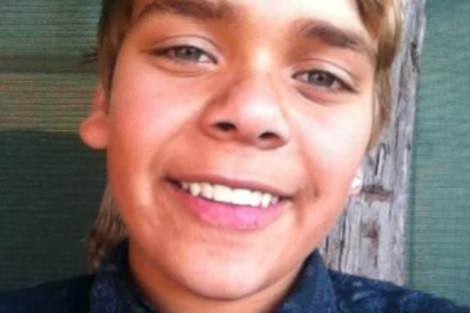
AUSTRALIA
- Kate Galloway
- 06 September 2016
5 Comments
This is the scandalous state of Indigenous affairs in Australia. Aboriginal and Torres Strait Islander people and their communities literally face a life and death struggle against the state itself. These are not isolated incidents. They represent the intrinsic failure of our society to heed the concerns of communities themselves, and to engage with fellow citizens in a dignified and respectful way. The failure is so grave that state treatment meted out to Indigenous Australians is actively harmful on a large scale.
READ MORE 
-
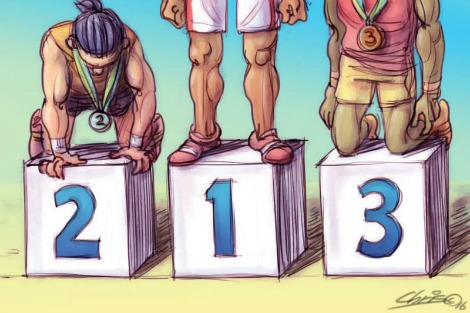
INTERNATIONAL
- Michael McVeigh
- 22 August 2016
9 Comments
Australia appears likely to fall well short of its pre-games medal target. This has led to criticism of the government's funding strategy, which has seen money poured into elite sports where Australia has traditionally been most successful or where medals seemed most likely. This approach inevitably leads people to calculate whether Australia has received 'value for money' for its investments. But it doesn't have much to do with what people actually get out of watching or being part of the Olympics.
READ MORE 
-
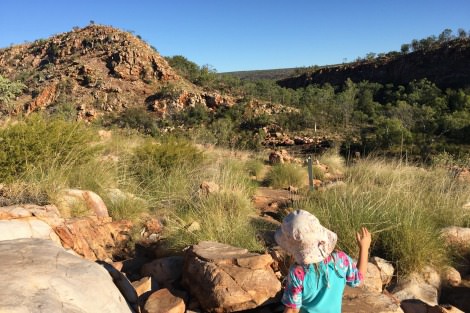
EDUCATION
- Sarah Klenbort
- 04 August 2016
While snorkelling at Ningaloo, we had an underwater lesson, in Auslan, about tropical fish and coral. On a walk to Manning Gorge on the Gibb River Road, I explained the terms 'first' and 'third-person' narrators. As we strolled past boabs, we discussed the merits and drawbacks of each perspective. Kaitlyn's written four stories on the trip so far and she recalled which point of view she chose for each story, and why. I used to criticise parents who thought their kids too precious for school. Now, I'm not so sure.
READ MORE 
-
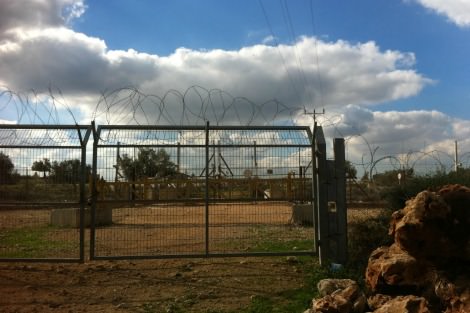
INTERNATIONAL
- Na'ama Carlin
- 28 July 2016
11 Comments
It was two years ago this month, in July 2014, that my flight touched down in Ben Gurion Airport half an hour later than scheduled. There were rumours of Hamas missiles landing in the vicinity of the airport. A few days later multiple airlines announced they were ceasing travel to Israel. What would become Israel's deadliest offensive in Gaza since the Second Intifada, 'Operation Protective Edge', was entering its second week. How did it come to this?
READ MORE 
-

INTERNATIONAL
- Fatima Measham
- 15 June 2016
45 Comments
At the epicentre of all this is a place where young, queer men and women had felt safe and free to be themselves. The dead are almost all black, brown, gay and working class. If, as Dr Cornel West has often said, justice is what love looks like in public, then injustice must be what hate looks like, and there is perhaps no greater injustice than murder. Mass murder is hatred realised in full grotesque proportion. This means is that the little things we do to validate hatred are not inconsequential.
READ MORE 
-
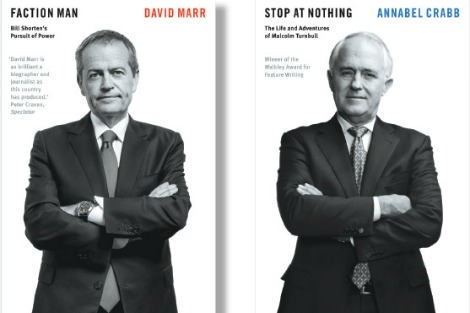
AUSTRALIA
- Andrew Hamilton
- 02 June 2016
8 Comments
David Marr describes Shorten at work in the claustrophobic world of the Labor factions and the unions where great haters abound. Annabel Crabb has a lighter touch, describing the career of Turnbull, with all its energy, intellectual and tactical brilliance, and victories with obvious enjoyment and in sunlit prose. The accounts raise two questions: Do the qualities of leaders matter much? And what insight do the leaders' stories provide into the likely achievements of the government they would lead?
READ MORE 
-

ARTS AND CULTURE
As is the time-honoured tradition of Hollywood PIs, Holland has long bound the wounds of some unresolved grief in alcohol and cynicism. Notwithstanding individual tastes that are by no means aligned with gender, this is the kind of movie that can tend to appeal to puerile male interests while diminishing respect for women. In this regard Shane Black, a mainstream filmmaker who is more self-aware than most, tries to have his cake and eat it too, by both drawing and subverting the objectifying male gaze.
READ MORE 
-
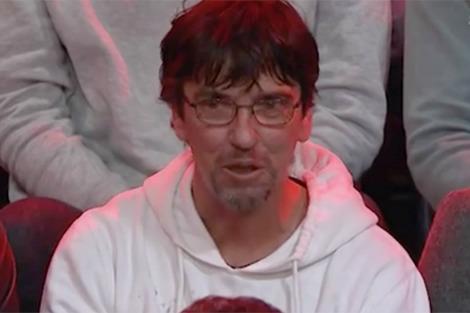
MEDIA
To put it bluntly, this is the point at which the free speech argument, like the Ouroboros serpent of ancient myth, eats its own tail. While the newspapers claimed that they were exercising their rights to free speech in their daily articles against Storrar, the effect of their dragging his name and life through the mud was undoubtedly that any other member of the public who dared ask awkward questions of their rulers would think again.
READ MORE 
-

ARTS AND CULTURE
- Ellena Savage
- 16 May 2016
2 Comments
When my alarm goes off in the morning I reach for my phone: check mail, check ABC, check Twitter. Get up, make filter coffee, pour one. Open my diary and spreadsheet, start working. Pour my second coffee. Eat something, clock calories in. Go for a walk, pick up whatever groceries, clock calories out. Back to work. If whatever I am working on isn't very interesting, this accounting for a day, after day, after day, is fairly sad. But it's also just living a life in 2016.
READ MORE 
-
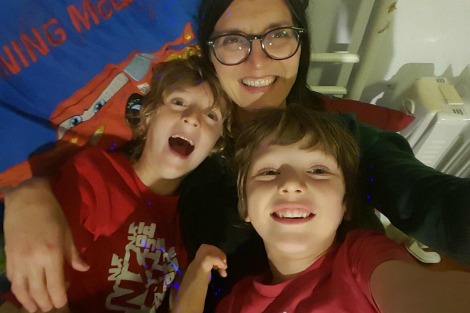
ARTS AND CULTURE
As a parent you learn to shore yourself against those uncomfortable questions from your offspring, but not all uncomfortable questions are created equally, and right up there with 'Mummy, where did I come from?' is the question: 'Am I your favourite?' Last week, US research published in the Journal of Family Psychology found that 70 per cent of mothers admitted to favouring one child over another. Whatever my usual protestations, do I do this too? Unfortunately, sometimes, I think I do.
READ MORE 
-
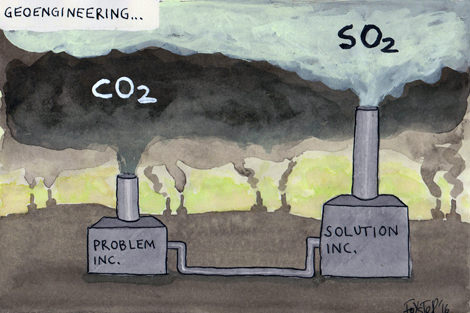
ENVIRONMENT
- Greg Foyster
- 14 April 2016
10 Comments
Geoengineering means intervening in the Earth's climate to offset global warming. It's hacking the planet on a monumental scale. The most widely studied proposal is spraying sulphate particles into the upper atmosphere to reflect sunlight, cooling the planet. The idea comes from huge volcanic eruptions, which can blast millions of tonnes of sulphur into the stratosphere, creating a kind of chemical sunshade. After decades of being taboo, this outlandish scheme is now being taken seriously.
READ MORE 
-

RELIGION
- Andrew Hamilton
- 07 April 2016
19 Comments
How do good people sink to this? The answer lies in the mutation of economic ideology from the crude buccaneering spirit of doing whatever it takes to get rich into a more urbane form. People see themselves as competing, not only for their own economic benefit, but for that of the company. This means greed can mask itself as altruism in serving a larger good. And as in the case of churches, identification with the company provides reason for protecting the company's reputation at all costs.
READ MORE 